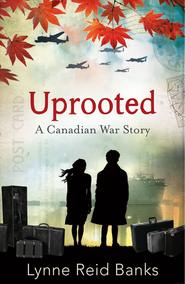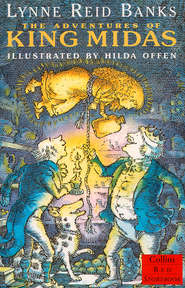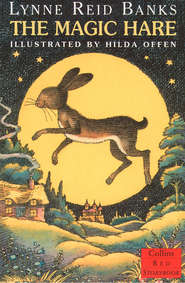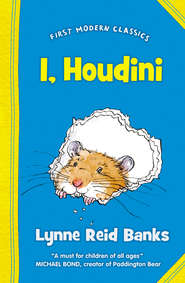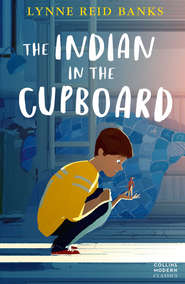По всем вопросам обращайтесь на: info@litportal.ru
(©) 2003-2024.
✖
The Dungeon
Настройки чтения
Размер шрифта
Высота строк
Поля
He scowled down at them for a long time. The teahouse fell silent. The widow stood tensed, torn between desperate need for the gold and agonised reluctance to part with her youngest child. McLennan was thinking. He wanted her for a servant. She would accompany him wherever he went. If she was of the small-foot breed, why did she walk badly?
He glanced at Kai-fung. He nodded. Buy her, she is worth it. He knew something McLennan did not.
He looked at the child. She was tiny – doll-like, in her drab trousers and padded jacket frog-buttoned down one side. She had the usual straight black hair, cut across her brow and tied back, a round face, a mouth like a squashed berry. Her almond-shaped eyes were lowered. There was nothing, absolutely nothing about her that set her apart from thousands of other poor little Mi-Ki girls.
Yet, as he stared at her, trying to decide, she dared a glance up at him. There was a flashing moment when their eyes met. There was something – something that reminded him – but no. That was unthinkable. It must be something else that drew him. In any case, this was not a look that claimed kinship, but like that of a little animal in a trap.
In a second, without any more thought, his mind was made up. He straightened, slapped the gold coin on the table, and took the child by the arm. Some days before, he had pulled a water lily out of a pond in an idle moment to see how it grew. Her wrist felt like its stem. He led her out of the teahouse.
She had no time to say goodbye. She took nothing – almost nothing. At the last moment, one of her sisters, tears streaming down her face, rushed out from behind the kitchen screen and thrust into a fold in the child’s jacket – a pathetic parting gift – a pair of eating sticks. That apart, all the little girl carried with her were her mother’s last words, whispered to her as she almost pushed her on her way – pushed her lest she clutch her back.
‘Remember who you are.’
Whatever she had been before, now she was Bruce McLennan’s tea-slave.
Chapter Four (#ulink_141f057a-a7be-57da-97de-4f30c4201e83)
The child’s name was Mudan, which, translated, is Peony, the name of a flower. But McLennan never knew this. He didn’t need a name for her. He called her ‘You’ or ‘Girl’, in English or the new tongue. She had to hold tightly to her name in her memory or she would have forgotten it – forgotten who she was.
‘Wo shi mudan – I am Peony,’ she said solemnly over and over again in her head like a mantra – a sacred, continual prayer to the Buddha.
To be snatched from her life so suddenly was a shock. But she had been brought up to the understanding that as a girl-child, she was destined to be some man’s possession. She hadn’t expected it to happen yet – that was all. Nor, of course, had she ever dreamed she would become the common chattel of a foreign giant, and be taken away into a man’s world of roughness and war. It was very frightening, and for the first hours, her mind was a blank, except for the repetition of her name.
That night, when the soldiers were in their billet, McLennan threw some straw on to the floor beside his own pallet-bed and pointed to it. Peony, worn out, lay down on it obediently, drawing her knees up to her chest for warmth. Her feet again caught the Scotsman’s attention. The toes seemed to come to a point under her cloth shoes and the insteps were high – they really did look like pears. He beckoned to Kai-fung.
‘Why feet thus?’ he asked stiltedly, using the new words.
‘They are bound.’
‘What’s that?’
The other man knelt down and took the child’s cloth shoes off. McLennan saw her shrink and wince.
Under the shoes were strips of dirty cloth that wrapped each foot. They were tied very tight. McLennan scowled. ‘Who do this – her mother?’ Kai-fung nodded. ‘But why?’
With signs and simple words, Kai-fung tried to explain. The feet of some girls were bound tight to keep them small, to stop their growth. This made the girls, when they grew up, more desirable to men.
At last, McLennan understood, or rather, guessed. The woman in the teahouse, having many daughters, had bound the feet of the youngest in the hope that she would be worth a high bride price when she grew up.
He stared down at this deformed creature he had paid a gold coin for and felt anger burn inside him. He would not allow himself to feel pity for her – or to feel anything for her. She was spoiled goods. The mother, who had kept her other daughters natural and uncrippled so they could work, had sold him one that was only meant for decoration – who would be lame and good for nothing.
‘I don’t want her!’ he shouted suddenly.
‘You can’t take her back.’
‘She’s no good like this!’
‘In a few years you can marry her.’
‘What? WHAT?’ roared McLennan in a fury.
Kai-fung, seeing he had given offence, was silent.
‘Take them off,’ McLennan said. ‘Take those rags off her feet! Maybe they’ll grow if you unbind her!’ He said most of it in English. Kai-fung shook his head, stood up and went back to his pallet.
‘Then I will!’ roared McLennan.
He knelt down and started to unfasten the bandages.
The child curled up and began to utter sharp yelps of pain. McLennan ignored this. He was not gentle. He almost tore off the bindings that had made his bargain so bitter. But when he got the first foot free of them, he stopped cold, and his stomach turned over. He barely stumbled outside the billet before he vomited. Then, very slowly, he came back and continued. Hard as he was, and used to terrible sights, those little, tortured feet somehow froze his anger, though what replaced it in his heart would be hard to describe, for normal pity had been crushed there. He only knew it sickened him.
When he had bared her feet and made himself look at them, he spoke directly to her for the first time.
‘Ye’ll no’ be wearing those rags,’he said. ‘Your feet must heal and grow and that’s all about it.’
Of course she understood not a word of this. McLennan went on staring at her feet, curled under, the toes beginning to sink into the soles. They stank like something rotten. No wonder she had given him that look of something wounded and in a trap. Her own mother—!It had crossed his mind, seeing the beautiful things these people made, that they might be more scientific and civilised than his own, but now he changed his mind. He wondered if it was too late for the feet to right themselves, or if he had better not simply cut his losses and leave her here.
Half a sovereign! No. She belonged to him now.
He called the billet-woman who had brought them food earlier. He gave her paper money to wash Peony’s feet, rub them with ointment and wrap them loosely in clean strips.
He couldn’t sleep that night for the child sobbing in agony as the blood in the bound feet began to feel its freedom. At last he became distraught, for her cries awoke other cries he still struggled to forget, and he roused the whole inn by shouting at her like a madman, ‘Be quiet! I canna endure your mewling!’ She froze in terror and her sobs stopped.
Now Peony began to share with McLennan the life of a wandering soldier.
At first her feet hurt more unbound than bound, and she couldn’t walk at all. Grumbling fiercely, he had to carry her on his back, or pay another to carry her. Her feet had to be dressed and wrapped afresh each evening. The pain was so terrible that sometimes she tried to bind them again to stifle it, but her master wouldn’t let her.
‘They must mend,’ he kept saying. And as if obeying his will, little by little, they began to. After a few months she could walk again and he bought her new shoes and some new clothes, for her old ones were threadbare and she was growing out of them.
She became a kind of mascot to the other men. They at least were not dead to pity, and they were far from their own families, so they made a pet of her; but McLennan treated her as what he felt her to be – a slave, bought and paid for.
Even before she could walk again, he put her to work. She had to rub his leather shoes with pig-grease. When his clothes got too filthy or stained with blood, she had to wash them, kneeling beside the tub. When his beard grew too long, she had to cut it with the sharp knife he called a dhu. If she didn’t do this very carefully, he would roar at her and even try to strike her.
Usually she dodged his hand, but occasionally a blow landed. She accepted this so meekly that he felt an unaccustomed sense of shame, but he soon shook it off. She must learn to obey and do her work properly, to make up for her shortcoming.
Her main task was to brew tea for him. He liked tea in the morning, and with his meals. She noticed he didn’t enjoy his food. This was good for her, because she ate what he left. She was given no meals of her own. It didn’t occur to McLennan that a body so small needed more than scraps. But the other men fed her titbits when McLennan’s back was turned, so she had enough, and her feet began to uncurl and grow again. She still walked badly – her feet could never completely recover – but she could walk, and with far less pain than before.
Because she had had a hard life with nothing but bare necessities, none of this seemed very terrible to her. The worst thing – when the pain in her feet got less – was all the noise and the fighting, the blood and the raucous voices of the men, especially when they’d been drinking, all of which frightened her.
Of course she was terribly homesick for her sisters, and for the safe, simple life she’d known, but when she thought of her mother she had conflicting feelings. Her mother had been merciless about the foot-binding, telling her that she must bear the pain so that one day, when she had tiny, enchanting feet like lotus-buds, she could live the life of a rich man’s wife, and help them all.
In any case, as the small army moved farther away, she sensed that she was never going to see them again. In the nights, when she curled up in some corner on a pile of hay or even the bare ground, the tears would come. But now she didn’t let her master see them.
As for Bruce McLennan, sometimes as the weeks went by he caught himself glancing at her and wondering, ‘Why did I buy her?’ The only answer he allowed himself was, ‘At home I have servants. A laird should have someone to attend him.’ He had obeyed an impulse, the random, greedy impulse that makes a man buy something just because he can.
But why this one, why not some strong, big-foot girl or young lad who would be of more practical use? Deep down he sensed a dark mystery in it. Deep down, where his feelings lay as twisted and out of shape as the girl’s feet, was a connection between this little Mi-Ki and his children’s voices, cut short long ago. Now, instead of his own children, he owned the child of some other man, some dead foreigner whose children had, however wretchedly, survived. McLennan owned her and he could do as he liked with her. It was a warped way of expressing what could not otherwise be expressed – the fundamental loss that can never be made up, and so must be compared to something small and contemptible, not a loss at all. The fact that she was damaged goods somehow locked into that need.
There was one old soldier who tried to get to know the foreign devil with the round eyes and hair the colour of fire. His name was Li-wu and he was different from the others. He was something of a philosopher, both more learned and more curious than the other men. They just saw the foreigner as a sort of tame monster, a useful fighter. Li-wu wanted to know about him. And he was drawn through pity, but later fondness, to the little girl who attended him.






